Table of Contents
Exploring the Journey of Self-Forgiveness
In life’s journey, we inevitably encounter moments where we falter, make mistakes, and feel the sting of regret. These experiences often leave us burdened with feelings of guilt and shame, creating a heavy weight on our hearts and minds. Such emotions can cloud our thoughts, disrupt our peace, and hinder our ability to find happiness. However, amidst this turmoil, the journey of self-forgiveness emerges as a beacon of hope, offering a transformative journey towards healing, liberation, and emotional freedom.
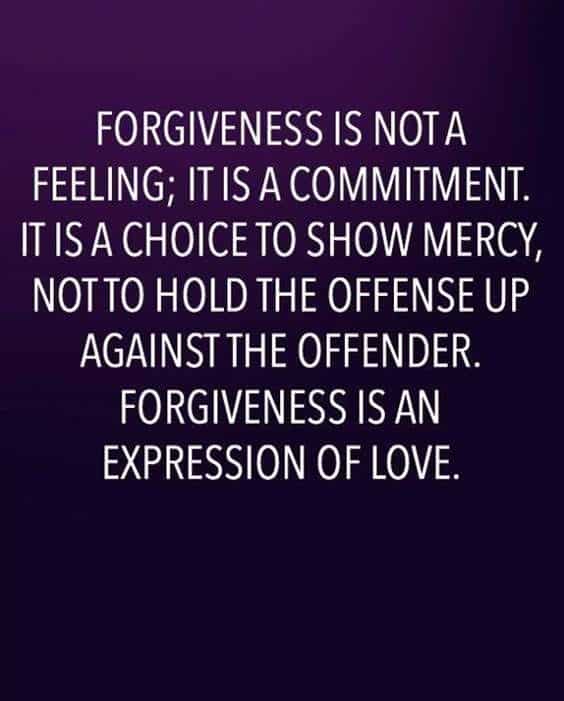
The journey of Self-forgiveness is not merely an act of absolution but a profound process of inner exploration and growth. It involves acknowledging our mistakes, accepting responsibility for our actions, and letting go of the self-imposed burden of guilt and shame. Through this journey, we learn to cultivate compassion and understanding towards ourselves, fostering a deeper sense of self-awareness and acceptance.
Check this Blog: 7 Practical Strategies to Master the Art of Active Listening for Improved Communication
The significance of self-forgiveness lies in its power to free us from the shackles of the past and open the door to a brighter future. By releasing ourselves from the grip of guilt and shame, we create space for healing, growth, and renewal. This journey allows us to reclaim our sense of inner peace, happiness, and authenticity.
We will explore the multifaceted aspects of the journey of self-forgiveness, from understanding its importance to navigating its complexities. We will delve into the process of self-forgiveness, offering practical strategies, exercises, and insights to support you on your path towards emotional liberation. Join us as we embark on this transformative journey of self-discovery, healing, and empowerment.
Understanding the Journey of Self-Forgiveness
Defining self-forgiveness: What it means and why it matters.
Self-forgiveness is a profound act of compassion and understanding towards oneself, rooted in the acknowledgement of one’s mistakes and the willingness to let go of guilt and self-blame. It involves accepting responsibility for our actions, learning from our mistakes, and ultimately releasing ourselves from the burden of past wrongdoings.
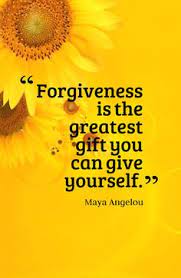
In the context of Indian culture, the journey of self-forgiveness is deeply ingrained in various spiritual and philosophical traditions. For example, in Hinduism, the principle of karma emphasizes the idea that our actions have consequences, both positive and negative. However, it also teaches that true liberation comes from letting go of attachment to the outcomes of our actions and cultivating a sense of inner peace and equanimity.
Check this Blog: Unveiling Your Authentic Self Blue Print: 4 Eye Openers For Self Growth
One real-life example of self-forgiveness from Indian origin is the story of Mahatma Gandhi. Despite his pivotal role in India’s struggle for independence, Gandhi experienced moments of self-doubt and regret, particularly regarding decisions he made during his leadership. However, Gandhi’s commitment to truth and nonviolence guided him towards self-forgiveness. He recognized his imperfections and limitations but remained steadfast in his dedication to his principles. Gandhi’s journey of self-forgiveness not only liberated him from the burden of guilt but also inspired millions around the world.
Self-forgiveness matters because it allows us to break free from the cycle of self-condemnation and negativity. When we forgive ourselves, we create space for healing, growth, and self-compassion. By embarking on the journey of self-forgiveness, we cultivate a deeper sense of self-awareness, resilience, and inner peace, paving the way for a more fulfilling and authentic life.
The Psychological and Emotional Impact of Guilt and Shame.
Guilt and shame are powerful emotions that can have profound psychological and emotional impacts on individuals. Guilt arises when we believe we have done something wrong or have failed to meet our standards or values. It often manifests as feelings of remorse, regret, or self-blame. Shame, on the other hand, is a deeper sense of unworthiness or inadequacy, stemming from a belief that we are fundamentally flawed or defective.
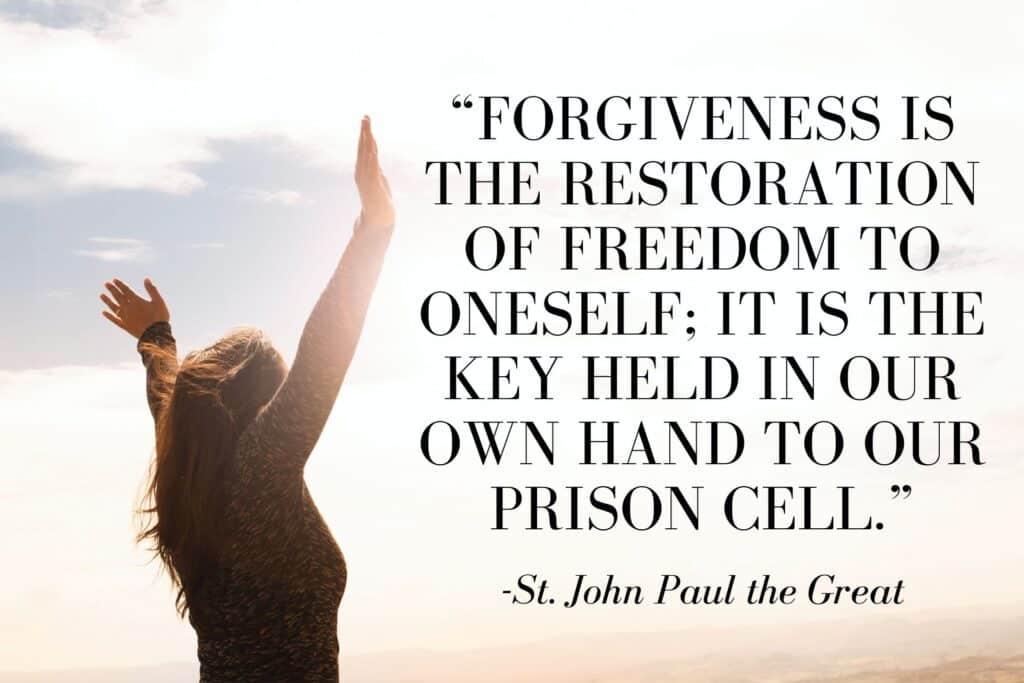
The psychological and emotional effects of guilt and shame can be significant. These emotions can lead to increased stress, anxiety, and depression as individuals ruminate over past mistakes or shortcomings. Guilt and shame can erode self-esteem and self-confidence, making it difficult to move forward or pursue personal goals. They may also contribute to a sense of isolation and alienation, as individuals may fear judgment or rejection from others.
Check this Blog: Self-Love Revolution: 5 Practical Steps for Cultivating Self-Love
In addition, guilt and shame can have physical manifestations, such as fatigue, insomnia, or even psychosomatic symptoms like headaches or stomachaches. These physical symptoms further exacerbate the psychological distress associated with these emotions.
One real-life example of the psychological and emotional impact of guilt and shame is the story of Malala Yousafzai, the Pakistani activist for female education and the youngest Nobel Prize laureate. Malala experienced guilt and shame after surviving a Taliban assassination attempt in 2012. Despite her courageous advocacy for education and women’s rights, she grappled with feelings of guilt for leaving behind friends and family who remained in danger. This inner turmoil led to anxiety and depression, highlighting the profound impact of guilt and shame on mental well-being.
Overall, the psychological and emotional effects of guilt and shame can be detrimental to one’s overall health and happiness. Recognizing and addressing these emotions is essential for promoting healing, self-acceptance, and resilience.
Recognizing the need to get on the journey of self-forgiveness in healing past wounds.
Embracing the journey of self-forgiveness is essential for healing past wounds and freeing ourselves from the burdens of the past. It allows us to break free from negative patterns and embrace a more positive and fulfilling future. Often, we carry the weight of our mistakes, regrets, and past hurts, allowing them to shape our present experiences and prospects. However, harbouring resentment, guilt, or self-blame only perpetuates our suffering, hindering our ability to find inner peace and move forward.
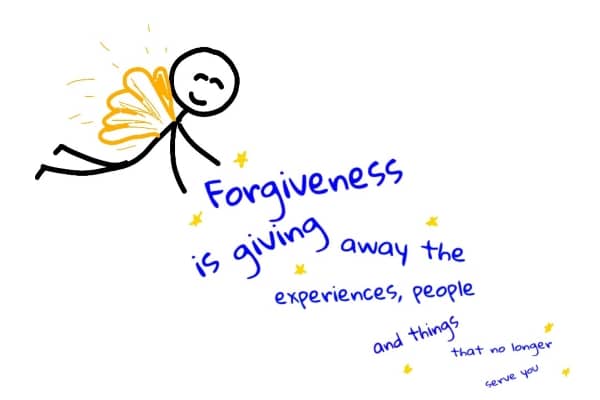
The journey of Self-forgiveness involves acknowledging our imperfections, accepting responsibility for our actions, and granting ourselves compassion and understanding. It’s about recognizing that we are human, prone to mistakes, and deserving of forgiveness. By releasing ourselves from the burden of past transgressions, we free up space for healing, growth, and transformation.
Check This Blog: The Art of Unlearning: 3 Amazing Steps to Sail Through
One of the key reasons for embracing the journey of self-forgiveness is its profound impact on mental and emotional well-being. Holding onto guilt and resentment can lead to increased stress, anxiety, and depression. It can also strain relationships and hinder personal development. By forgiving ourselves, we alleviate these negative emotions, allowing ourselves to experience greater peace, joy, and fulfilment.
Moreover, the journey of self-forgiveness is essential for breaking the cycle of self-destructive behaviours. When we refuse to forgive ourselves, we may engage in harmful patterns such as self-sabotage, addiction, or unhealthy relationships as a form of punishment or avoidance. By embarking on the journey of self-forgiveness, we empower ourselves to make positive changes in our lives and break free from destructive patterns.
Check this Blog: Crafting Your Awesome Narrative: Awakening the Power Within” – 6 Steps to Rewrite Your Story
Another example of the need for the journey of self-forgiveness comes from the life of Sudha Murthy, an Indian author, philanthropist, and chairperson of the Infosys Foundation. Despite her numerous achievements, Murthy has spoken openly about her struggles with self-doubt and guilt over past decisions.
In her autobiography “Wise and Otherwise,” Murthy recounts an incident where she made a mistake that led to a significant financial loss for her company. At the time, she felt overwhelmed by guilt and shame, believing that she had let down her colleagues and family. However, Murthy eventually realized that dwelling on her mistake was only causing her more pain and preventing her from moving forward.
Through self-reflection and self-forgiveness, Murthy learned to accept her imperfections and focus on making amends. She recognized that mistakes are a natural part of life and that dwelling on them serves no purpose. Instead, she chose to forgive herself, learn from the experience, and use it as a stepping stone for personal growth.
Murthy’s journey highlights the importance of self-forgiveness in overcoming setbacks and embracing personal growth. By forgiving ourselves for past mistakes, we free ourselves from the burden of guilt and shame, allowing us to move forward with greater clarity and resilience. It’s a reminder that self-forgiveness is not a sign of weakness but rather a courageous act of self-compassion and growth.
In conclusion, recognizing the need for self-forgiveness is a vital step in the journey of healing past wounds. By embracing self-forgiveness, we can alleviate emotional suffering, break free from destructive patterns, and create a brighter, more fulfilling future for ourselves.
The Consequences of Guilt and Shame
Exploring the detrimental effects of carrying guilt and shame.
Guilt and shame are powerful emotions that can have profound consequences on our mental and emotional well-being. When we experience guilt, we feel remorse or regret for something we have done or failed to do. This emotion can be constructive, motivating us to make amends and correct our behaviour. However, excessive guilt can lead to self-blame and a sense of unworthiness, causing feelings of anxiety, depression, and low self-esteem.
Check this Blog: Radical Self-Love: 5 Amazing Tips to Embrace and Celebrate Yourself Unconditionally
Shame, on the other hand, goes beyond feeling bad about our actions; it makes us feel bad about who we are as individuals. Unlike guilt, which focuses on our behaviour, shame attacks our core sense of self-worth and identity. It tells us that we are inherently flawed and unworthy of love and acceptance. As a result, shame often leads to feelings of isolation, inadequacy, and self-loathing.
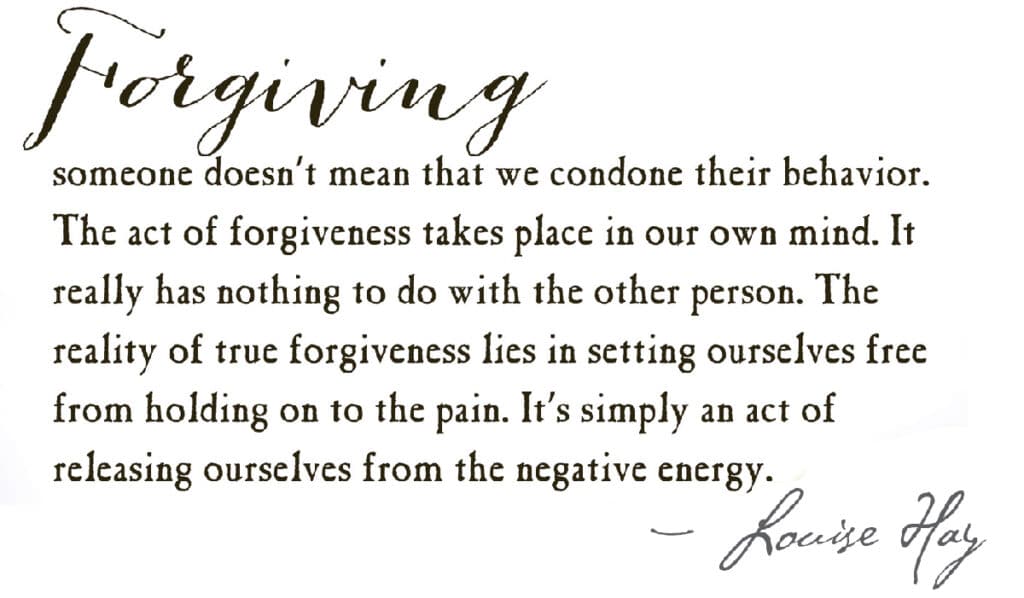
The consequences of guilt and shame extend beyond our emotional state and can affect our relationships, work performance, and overall quality of life. People burdened by these emotions may struggle to form close connections with others, fearing rejection or judgment. They may also experience difficulty in setting and achieving goals, as feelings of unworthiness can undermine their confidence and motivation.
Moreover, prolonged exposure to guilt and shame can have physical consequences, such as increased stress levels, weakened immune function, and chronic health issues. Therefore, it’s essential to address these emotions and find healthy ways to cope with them, such as practising self-forgiveness, seeking support from others, and cultivating self-compassion. By acknowledging and processing our guilt and shame, we can free ourselves from their grip and move forward with greater emotional resilience and well-being.
Case studies and real-life examples illustrate the long-term consequences of unresolved guilt and shame.
Real-life examples vividly illustrate the long-term consequences of unresolved guilt and shame, highlighting the profound impact these emotions can have on individuals’ lives.
Check this Blog: Unleash Your Inner Resilience: 5 Outstanding Keys To Face Adversity
Take the case of Priya, a successful businesswoman in her 40s. Throughout her career, Priya has achieved numerous accolades and professional milestones. However, beneath her confident exterior lies a deep sense of unworthiness stemming from childhood trauma and parental expectations. Despite her achievements, Priya constantly fears failure and seeks validation from others. This has led to chronic stress, anxiety, and an inability to form authentic connections in her personal life.
Similarly, consider the story of Rahul, a talented artist who struggles with self-doubt and perfectionism. Growing up, Rahul faced criticism from his parents and peers for pursuing a career in the arts. Despite receiving acclaim for his work, Rahul harbors feelings of inadequacy and shame, believing he will never be good enough. As a result, he sabotages his own success, procrastinating on projects and avoiding opportunities for fear of rejection.
Another example is Maya, a devoted mother and wife who grapples with guilt over past mistakes. Maya’s guilt stems from a failed relationship in her youth, which resulted in her estrangement from her family. Despite rebuilding her life and finding happiness, Maya carries the burden of her past, constantly seeking forgiveness and validation from others. This has led to strained relationships with her loved ones and a persistent sense of unworthiness.
These examples demonstrate the lasting impact of unresolved guilt and shame on individuals’ mental, emotional, and relational well-being. Without addressing these underlying emotions, individuals like Priya, Rahul, and Maya may continue to struggle with self-esteem, interpersonal relationships, and overall life satisfaction. Recognizing the importance of forgiveness, self-compassion, and healing is crucial for breaking free from the cycle of guilt and shame and moving towards a more fulfilling and authentic life.
Embracing Self-Compassion
Understanding the concept of self-compassion and its role in self-forgiveness.
Self-compassion is the practice of treating oneself with kindness, understanding, and acceptance, especially in moments of difficulty or suffering. It involves extending the same care and compassion to oneself that one would offer to a close friend or loved one. In the journey of self-forgiveness, self-compassion plays a crucial role in facilitating the process of letting go of guilt and shame.
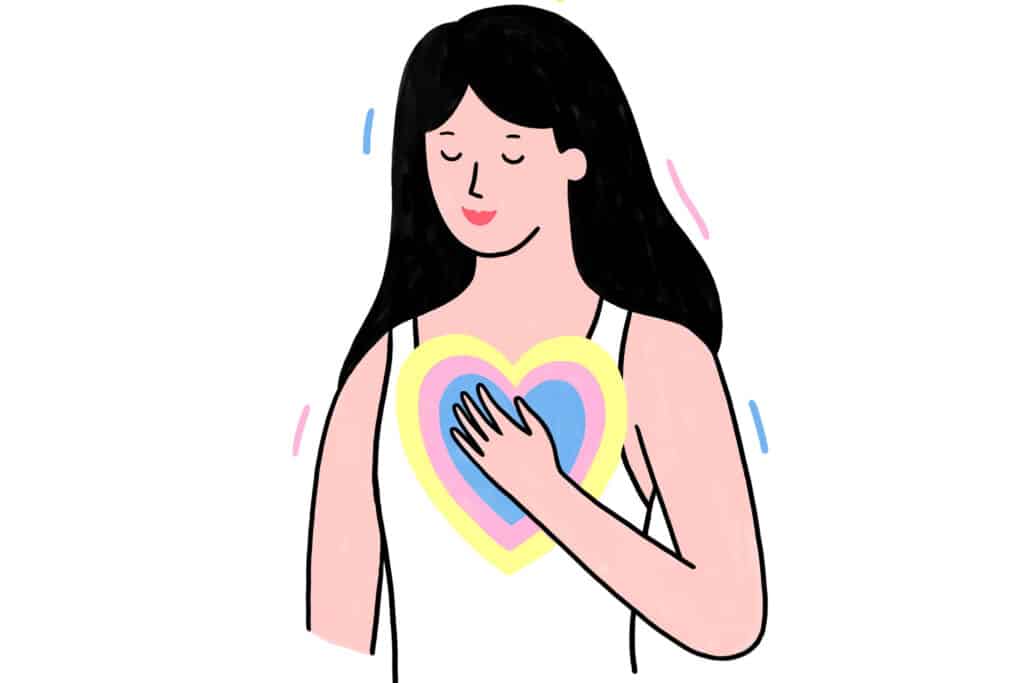
Central to self-compassion is the recognition of our shared humanity—the acknowledgement that all human beings experience imperfection, suffering, and mistakes. By embracing our imperfections with kindness and understanding, we can cultivate a sense of common humanity, which helps to alleviate feelings of isolation and self-judgment.
Self-compassion also involves mindfulness, the practice of being present and aware of our thoughts, feelings, and experiences without judgment. Mindfulness allows us to observe our inner experiences with curiosity and openness, rather than reacting to them with criticism or avoidance. Through mindfulness, we can develop greater self-awareness and self-acceptance, which are essential for the journey of self-forgiveness.
Moreover, self-compassion encourages a nurturing and supportive inner dialogue. Instead of harsh self-criticism, individuals who practice self-compassion speak to themselves with kindness and encouragement, offering words of comfort and reassurance in times of difficulty. This compassionate self-talk helps to counteract the negative self-talk that often accompanies feelings of guilt and shame, fostering a greater sense of inner peace and well-being.
Check This Blog: Nurturing Self-Love: 5 Tips To Setting Healthy Boundaries for Your Well-being
Overall, self-compassion is a key component in the journey of self-forgiveness, as it enables individuals to approach their mistakes and shortcomings with greater kindness, understanding, and acceptance. By cultivating self-compassion, individuals can release the grip of guilt and shame and embrace themselves with love and forgiveness, paving the way for healing and inner peace.
Cultivating self-compassion: Practices and exercises for developing self-compassionate attitudes.
Cultivating self-compassion involves practising specific techniques and exercises designed to foster a kinder, more understanding relationship with oneself. Here are some practices and exercises for developing self-compassionate attitudes:
- Mindful Self-Compassion Meditation: Take time each day to practice mindfulness meditation focused on self-compassion. Begin by sitting comfortably and bringing your attention to your breath. Then, repeat phrases such as “May I be kind to myself” or “May I forgive myself” with each inhale and exhale. This practice helps to cultivate a sense of warmth and kindness towards oneself.
- Writing Self-Compassionate Letters: Set aside time to write a letter to yourself from a place of compassion and understanding. Acknowledge your struggles, mistakes, and pain, and offer words of kindness, encouragement, and forgiveness. This exercise allows you to practice self-compassion through written expression.
- Identifying Common Humanity: Reflect on the shared human experience of imperfection and suffering. Recognize that everyone makes mistakes and faces challenges and that you are not alone in your struggles. This awareness helps to normalize your experiences and reduce feelings of isolation and self-judgment.
- Self-Compassionate Affirmations: Create a list of self-compassionate affirmations or mantras that resonate with you. Repeat these affirmations regularly, especially during moments of self-doubt or criticism. Examples include “I am worthy of love and forgiveness” and “I am doing the best I can with what I have.”
- Self-Care Practices: Engage in activities that nurture your physical, emotional, and mental well-being. This could include exercise, spending time in nature, practising hobbies, or seeking support from loved ones. Prioritizing self-care helps to reinforce feelings of self-worth and compassion.
- Self-Compassion Breaks: Whenever you notice self-critical thoughts or feelings arising, pause and take a self-compassion break. Acknowledge your suffering with kindness, remind yourself that imperfection is part of being human, and offer yourself words of comfort and support.
By incorporating these practices into your daily life, you can cultivate a greater sense of self-compassion and learn to relate to yourself with greater kindness, understanding, and acceptance. Over time, these attitudes can help you navigate life’s challenges with greater resilience and compassion for yourself and others.
Examining the benefits of self-compassion on mental, emotional, and physical well-being.
When exploring the benefits of self-compassion on your mental, emotional, and physical well-being, you’ll discover its profound impact on various aspects of your life. Studies consistently show that practising self-compassion leads to greater resilience, emotional intelligence, and overall psychological well-being.
Self-compassion acts as a protective factor against stress and anxiety, buffering the negative effects of life’s challenges. When faced with adversity, self-compassionate individuals tend to respond with greater resilience, bouncing back from setbacks more effectively.
Check This Blog: Embracing Your Inner Child: 5 Awesome Steps Journey to Lasting Self-Love
Emotionally, self-compassion fosters a healthier relationship with your feelings and experiences. Instead of suppressing or avoiding difficult emotions, approaching them with kindness and understanding reduces feelings of shame and inadequacy, promoting emotional well-being and inner peace.
Self-compassion also enhances your capacity for empathy and connection with others. By recognizing your shared humanity and treating yourself with kindness, you become more compassionate towards others. This strengthens your relationships and fosters a sense of belonging and connection in your communities.
Furthermore, self-compassion has been linked to improved physical health outcomes. Research suggests that self-compassionate individuals are more likely to engage in health-promoting behaviours, such as regular exercise, healthy eating, and adequate sleep. These behaviours contribute to better overall physical well-being and lower rates of chronic illness.
In essence, practising self-compassion serves as a foundation for your holistic well-being, supporting mental, emotional, and physical health. By nurturing self-compassion, you can cultivate resilience, emotional intelligence, and overall psychological well-being, leading to a more fulfilling and meaningful life..
The Journey of Healing
Steps to embark on the journey of self-forgiveness: Acceptance, acknowledgement, and accountability.
Embarking on the journey of self-forgiveness is a transformative process that begins with three crucial steps: acceptance, acknowledgement, and accountability.

Firstly, acceptance is about acknowledging our mistakes and their consequences without judgment. It involves recognizing that we are human and, therefore, fallible. By accepting our mistakes, we create space for healing and growth. This step requires compassion and understanding towards ourselves, allowing us to let go of self-blame and resentment.
Secondly, acknowledgement involves taking responsibility for our actions. It’s about facing the truth of what we’ve done, without making excuses or deflecting blame onto others. Acknowledgement requires humility and courage to confront our mistakes head-on. It’s a crucial step towards self-awareness and personal accountability.
Lastly, accountability involves making amends and taking steps to right our wrongs. It’s about actively seeking forgiveness from ourselves and others impacted by our actions. This step may involve apologizing, making restitution, or changing our behaviour to prevent similar mistakes in the future. Accountability is essential for rebuilding trust and repairing relationships.
Embarking on the journey of self-forgiveness requires patience, self-compassion, and commitment. It’s not always easy, and progress may be slow at times. However, by embracing acceptance, acknowledgement, and accountability, we can move towards healing and inner peace.
For example, let’s consider the story of Maya, who struggled with forgiving herself for a past mistake that had hurt her friend. Maya initially found it challenging to accept her role in the situation and acknowledge the pain she had caused. However, through therapy and self-reflection, Maya began to accept responsibility for her actions and reached out to her friend with a sincere apology. By taking accountability and making amends, Maya was able to forgive herself and rebuild her friendship, ultimately finding healing and closure.
The Role of Empathy in the journey of Self-Forgiveness Process.
Empathy and understanding play pivotal roles in the forgiveness process, fostering compassion towards ourselves and others. When we empathize, we put ourselves in the shoes of those we’ve hurt or who have hurt us, gaining insight into their feelings and perspectives. This understanding can soften our hearts and open the door to forgiveness.
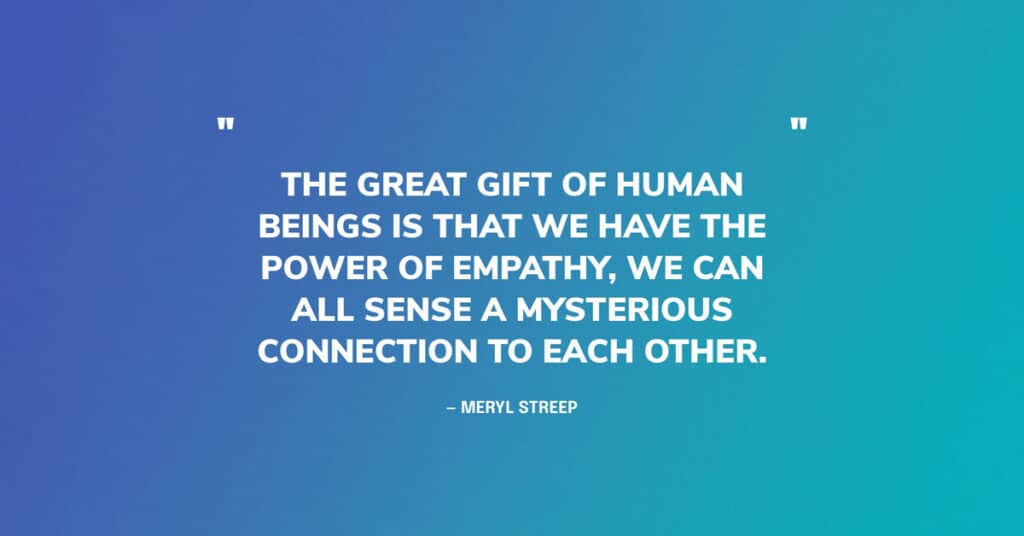
Take the story of Ravi and Priya, childhood friends who drifted apart after a falling out. Years later, Ravi reached out to Priya, expressing regret for his past actions. Initially, Priya was hesitant to forgive Ravi, holding onto feelings of resentment and betrayal. However, Ravi showed genuine empathy, acknowledging the pain he had caused Priya and demonstrating a deep understanding of her feelings. He listened attentively as Priya shared her hurt and frustration, validating her emotions without judgment.
Through Ravi’s empathy and understanding, Priya felt heard and valued, paving the way for forgiveness. As Priya began to see Ravi’s remorse and efforts to make amends, her heart softened, and she found it easier to forgive him. Their friendship was rekindled, stronger than before, with a newfound sense of understanding and empathy.
In the forgiveness process, empathy allows us to release the anger and resentment we hold towards others. It enables us to recognize that everyone makes mistakes and that forgiveness is a gift we give ourselves. Similarly, self-empathy is crucial for this journey of self-forgiveness, as it helps us understand our motivations and circumstances without self-blame.
Check This Blog: Mastering Self-Awareness: 4 Awesome Techniques To Unleash Your Inner Strength
By practising empathy and understanding, we create space for healing and reconciliation, both within ourselves and in our relationships. It’s a powerful tool that bridges the gap between hurt and healing, paving the way for forgiveness and inner peace.
Overcoming obstacles and challenges in the journey of self-forgiveness.
Embarking on the journey of forgiveness is not always easy and often comes with its own set of obstacles and challenges. However, overcoming these hurdles is essential for achieving true healing and inner peace.
One significant obstacle is the fear of vulnerability. Opening ourselves up to forgiveness means confronting painful emotions and exposing our vulnerabilities. It can be frightening to let go of our defences and allow ourselves to be emotionally raw. However, it’s essential to recognize that vulnerability is not a weakness but a sign of strength. By embracing vulnerability, we create the space for authentic connection and healing.
Another obstacle is the resistance to change. Forgiveness requires us to let go of old patterns, beliefs, and resentments that we’ve held onto for so long. It can be challenging to break free from these familiar but toxic patterns, as they often provide a false sense of security. However, by embracing change and letting go of what no longer serves us, we can pave the way for transformation and growth.
Moreover, forgiveness may also be hindered by our ego. Our ego often seeks validation and justification for our pain and grievances, making it difficult to release them. However, by letting go of our ego’s need to be right and choosing compassion instead, we can transcend our limitations and experience true freedom.
Furthermore, external factors such as societal pressure or the opinions of others can also pose challenges on the path to forgiveness. We may fear judgment or backlash from others for forgiving someone who has wronged us. However, it’s crucial to prioritize our healing and well-being above external validation.
In overcoming these obstacles, it’s essential to practice self-compassion, patience, and perseverance. By acknowledging and accepting the challenges we face along the path to forgiveness, we can navigate them with grace and resilience, ultimately finding peace and healing.
Letting Go and Moving Forward
Releasing resentment, anger, and bitterness towards oneself and others.
Releasing resentment, anger, and bitterness towards oneself and others is a crucial step on the journey of self-forgiveness. It involves letting go of the emotional baggage of the past and making peace with ourselves and others. Forgiveness is not just about pardoning those who have wronged us but also about freeing ourselves from the burden of holding onto negative emotions.
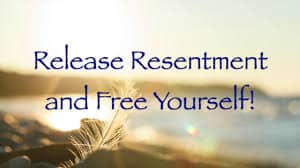
When we hold onto resentment and anger, we carry a heavy weight that affects our mental and emotional well-being. These negative emotions can consume us, leading to stress, anxiety, and even physical health issues. Moreover, harbouring bitterness towards ourselves can damage our self-esteem and hinder our personal growth.
To release resentment and anger, it’s essential to practice compassion and empathy towards ourselves and others. Recognize that holding onto grudges only perpetuates suffering and prevents us from moving forward. Instead, choose to let go of the past and focus on the present moment. Understand that forgiveness is a gift we give to ourselves, allowing us to break free from the chains of resentment and bitterness.
One effective way to release resentment is through forgiveness meditation or journaling. By expressing our feelings and intentions towards those who have hurt us, we can gradually release the emotional charge associated with past grievances. Additionally, practising self-compassion and self-forgiveness is vital for healing our wounds and letting go of self-blame.
Real-life examples of individuals who have successfully released resentment and embraced forgiveness can inspire us on our journey. For instance, Nelson Mandela forgave his oppressors after spending 27 years in prison, choosing reconciliation over revenge. Similarly, Mahatma Gandhi preached forgiveness and nonviolence, even towards his adversaries. These examples remind us of the transformative power of forgiveness in overcoming adversity and finding inner peace.
Techniques for letting go of past mistakes and embracing a brighter future.
Letting go of past mistakes is essential for moving forward and creating a brighter future. Here are some techniques to help you release the weight of the past and embrace a new beginning:
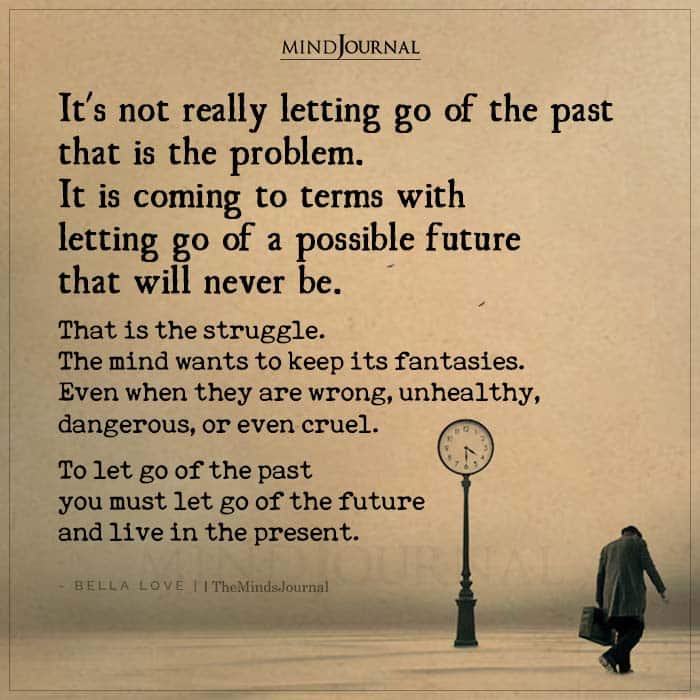
- Practice Self-Compassion: Treat yourself with kindness and understanding. Acknowledge that making mistakes is part of being human, and forgive yourself for past errors. Self-compassion allows you to be gentle with yourself, fostering a positive mindset for growth.
- Learn from Mistakes: Rather than dwelling on past mistakes, view them as learning opportunities. Reflect on what went wrong, what you could have done differently, and how you can apply these lessons to future situations. By learning from your mistakes, you empower yourself to make better choices going forward.
- Focus on the Present: Shift your focus from dwelling on the past to living in the present moment. Practice mindfulness to become more aware of your thoughts and emotions without judgment. By focusing on the here and now, you can let go of regrets about the past and cultivate gratitude for the present.
- Set Goals and Take Action: Define clear goals for yourself and take proactive steps to achieve them. Setting goals gives you a sense of direction and purpose, helping you to focus on creating a positive future rather than ruminating on past mistakes.
- Practice Gratitude: Cultivate an attitude of gratitude by appreciating the good things in your life. Regularly express gratitude for the people, experiences, and opportunities that bring you joy and fulfilment. Gratitude shifts your focus towards the positive aspects of life, making it easier to let go of negativity and embrace optimism.
- Seek Support: Don’t hesitate to reach out to friends, family, or a therapist for support. Talking about your feelings and experiences can provide valuable insights and emotional healing. Surround yourself with people who uplift and encourage you on your journey of self-forgiveness and personal growth.
By implementing these techniques, you can let go of past mistakes and embrace a brighter future filled with possibility and hope. Remember, the power to create positive change lies within you.
The importance of forgiveness in breaking free from the cycle of guilt and shame.
Forgiveness plays a crucial role in breaking free from the cycle of guilt and shame. When we hold onto grudges or resentments, we carry the weight of negative emotions that can keep us trapped in a cycle of self-blame and low self-esteem. By practising forgiveness, we release ourselves from this burden and reclaim our sense of self-worth and empowerment.
Firstly, forgiveness allows us to let go of the past and move forward with our lives. When we forgive ourselves or others for past mistakes or wrongdoings, we release the emotional attachment to those events. This freedom from the past enables us to focus our energy on the present moment and the future, rather than dwelling on what cannot be changed.
Moreover, forgiveness promotes healing and emotional well-being. Holding onto feelings of guilt or shame can have detrimental effects on our mental and emotional health, leading to anxiety, depression, and stress. When we forgive ourselves and others, we release these negative emotions, allowing us to experience greater peace, happiness, and inner harmony.
Additionally, forgiveness fosters empathy and understanding. By acknowledging our fallibility and recognizing that others are also imperfect beings, we cultivate compassion for ourselves and those around us. This empathy allows us to see situations from different perspectives and empathize with the experiences of others, leading to deeper connections and healthier relationships.
Furthermore, forgiveness promotes personal growth and transformation. When we forgive, we acknowledge our capacity for growth and resilience. We recognize that mistakes are opportunities for learning and that forgiveness is an essential part of the journey towards self-improvement and self-discovery.
In essence, forgiveness is a powerful tool for breaking free from the cycle of guilt and shame. By embracing forgiveness, we can cultivate greater self-compassion, emotional well-being, and personal growth, ultimately leading to a more fulfilling and empowered life.
Cultivating Inner Peace and Emotional Freedom
Finding peace within oneself through the practice of self-forgiveness.
Finding peace within oneself through the practice of self-forgiveness is essential for our emotional well-being and personal growth. Journey of Self-forgiveness allows us to find inner peace and acceptance, regardless of our past mistakes or shortcomings. It’s about embracing our humanity and allowing ourselves to be imperfect.
When in the journey of self-forgiveness, we let go of the self-critical thoughts and judgments that weigh us down. Instead of dwelling on our past mistakes, we acknowledge them, learn from them, and release ourselves from their grip. This process frees us to experience a sense of peace and tranquillity within ourselves.
Moreover, the journey of self-forgiveness enables us to cultivate self-compassion and kindness towards ourselves. Rather than being harsh and unforgiving, we treat ourselves with the same empathy and understanding that we would offer to a friend in need. This compassionate attitude fosters a deeper connection with ourselves and allows us to heal from within.
In essence, getting on the journey of self-forgiveness is a powerful practice that leads to inner peace and self-acceptance. By embracing our imperfections and letting go of the past, we create space for peace, love, and harmony to flourish within ourselves.
Living authentically and aligned with one’s values and aspirations.
Living authentically and aligned with one’s values and aspirations is a key aspect of personal fulfilment and happiness. Being on the journey of Self-forgiveness plays a crucial role by allowing us to let go of past mistakes and embrace who we truly are.When we forgive ourselves, we release the burdens of guilt and shame that hold us back from living in alignment with our values. We no longer feel the need to conform to societal expectations or pretend to be someone we’re not. Instead, we embrace our true selves and live authentically, according to what truly matters to us.
Being on the journey of Self-forgiveness also gives us the courage to pursue our aspirations and dreams without fear of failure or judgment. We recognize that making mistakes is a natural part of growth and learning, and we don’t let setbacks deter us from our path.
In essence, being on the journey of self-forgiveness empowers us to live with integrity and authenticity, honouring our values and aspirations. By letting go of the past and embracing who we are, we create a life that is meaningful, purposeful, and true to ourselves.
Sustaining emotional freedom: Strategies for maintaining forgiveness and self-compassion in daily life.
Sustaining emotional freedom is vital for maintaining mental and emotional well-being in the face of life’s challenges. It involves cultivating practices and habits that promote inner peace and resilience. One key strategy is practicing mindfulness, which involves staying present in the moment and observing thoughts and feelings without judgment. Mindfulness helps to prevent negative emotions from overwhelming you and allows you to respond to situations with clarity and calmness.
Setting healthy boundaries is another crucial aspect of sustaining emotional freedom. By establishing limits on what you allow into your life, you protect yourself from toxic relationships and situations that drain your energy. This empowers you to prioritize your own well-being and focus on what truly matters to you.
Forgiveness is also essential for maintaining emotional freedom. By letting go of grudges and releasing resentment, you free yourself from the burden of carrying negative emotions. Instead, you cultivate compassion for yourself and others, fostering inner peace and harmony.`
Overall, sustaining emotional freedom requires a combination of self-awareness, self-care, and compassion. By practising mindfulness, setting healthy boundaries, and embracing forgiveness, you can nurture a sense of inner calm and resilience that carries you through life’s ups and downs.
Conclusion:
The journey of self-forgiveness is a profound and transformative process that leads to inner peace and happiness. While it may not be easy, it is incredibly rewarding. By embarking on this journey, we release the burdens of guilt and shame that weigh us down, allowing us to experience a sense of liberation and emotional freedom.
Through self-forgiveness, we heal old wounds and break free from the cycle of self-blame and negativity. It is a journey of self-discovery and acceptance, where we learn to embrace our flaws and imperfections with compassion and understanding. As we forgive ourselves for past mistakes and let go of regrets, we create space for growth and personal development.
Moreover, self-forgiveness enables us to cultivate a deeper connection with ourselves and others. It allows us to nurture healthier relationships and foster a greater sense of empathy and compassion. Ultimately, the journey of self-forgiveness is a journey of empowerment and renewal—a journey that leads us towards a brighter and more fulfilling future.

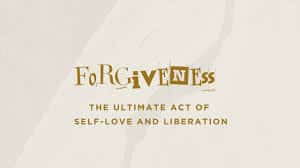


Pingback: Boosting Confidence: 7 Unbelievable Strategies To Reclaim Confidence - True Potential Quest
Pingback: The Healing Power of Self-Forgiveness: 13 Forgiving Yourself Books to Transform Your Life - True Potential Quest
Pingback: Understanding the Spiritual Meaning of Forgiveness: 6 Awesome Ways To Healing the Soul - True Potential Quest
Pingback: From Pain to Peace: 7 Books on Healing Childhood Trauma - True Potential Quest
Pingback: Deconstructing Guilt: 5 Powerful Steps to Reclaim Your Life - True Potential Quest
Pingback: Habit Blueprint: 15 Steps to Crafting Your Best Self - True Potential Quest